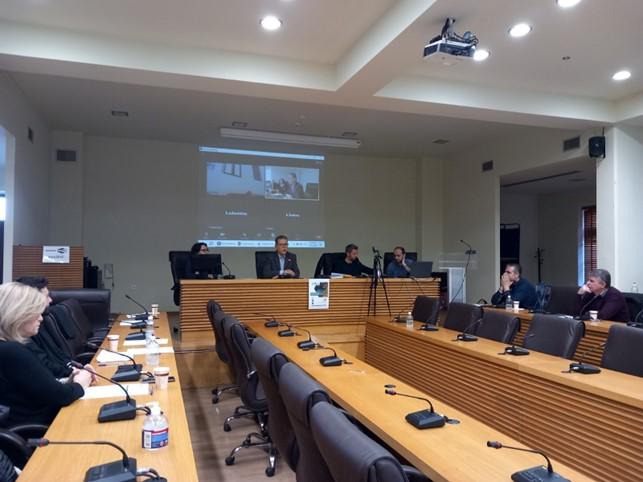1st RAW4RES stakeholders meeting in Kozani, Greece

During the meeting, the RAW4RES project was comprehensively introduced, providing insights into the problems it seeks to address. The presentation covered an overview of the project, highlighted key issues within its scope, delved into the specifics of Activity A1.1, and elucidated on the pertinent aspects of Greek mining legislation. The necessity of critical raw materials in the transition to climate neutrality was emphasized, as they are essential for the production of "green" technologies, the electric mobile industry, and artificial intelligence applications. The role that the circular economy will play in the recovery of critical raw materials was also highlighted, as well as the opportunities that will arise for research and the creation of start-up enterprises. The representative of the Mining Inspectorate of Northern Greece presented the Mining and Quarrying Legislation and the related activity in Western Macedonia.
A fruitful discussion followed, during which key conclusions and policy recommendations were reached:
- The RAW4RES project must take into account data concerning the entire Region of Western Macedonia and not be limited to the narrow geographical boundaries of the municipality.
- It is considered imperative to update the technical data and existing mapping of the deposits through new geological surveys in light of the new technical-economic data posed by “green” development.
- Conflicts have been identified between different land uses, mainly for the development of renewable energy technologies, agriculture, and livestock. It was emphasized that there is no specific methodology based on which the final use is chosen, while the new Spatial Plan is expected to provide solutions to some of these concerns.
- It was proposed to create a tool for the integration of all information concerning the exploitation/management of critical raw materials so that all involved authorities have access to the same data. This aims to speed up control and licensing procedures, as well as to avoid overlaps and mutual cancellations between the various existing management and development plans.
- Mining activities and activities related to the recycling of Critical Raw Material from mining waste and industrial waste are limited. Reported reasons for this were that there is a lack of know-how as well as the required technology to recover critical raw materials from secondary materials and waste. This matter should be studied further, and measures for attracting new enterprises in this sector should be addressed.
Participants concluded that the project provides the opportunity to find solutions to critical matters regarding Critical Raw Material and entrepreneurship, and all stakeholders agreed to continue working towards this achievement.
